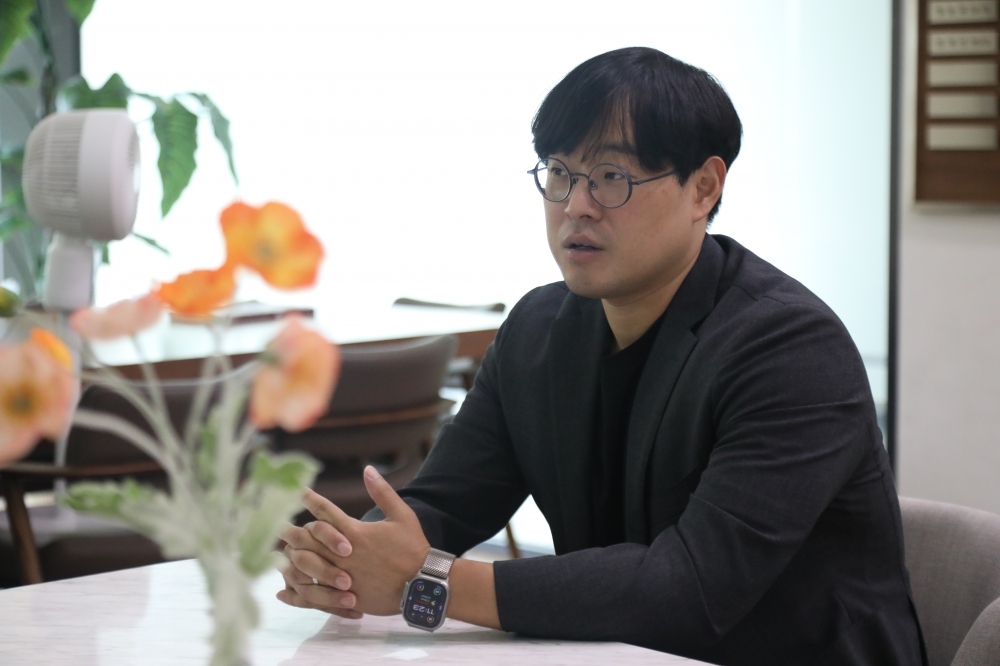News
KUBS News
“Strict Yet Kind”: Professor Jongsoo Kim on His Teaching Philosophy and Seoktap Award
2025.07.29 Views 2143 국제실
“Strict Yet Kind”: Professor Jongsoo Kim on His Teaching Philosophy and Seoktap Award

Professor Jongsoo Kim, recipient of the Seoktap Teaching Award for the second semester of 2024, is a faculty member in the field of Management and Strategy. He teaches the undergraduate course Business Strategy and the graduate course Strategic Management Methodology, fostering deep engagement with students and emphasizing foundational knowledge. Appointed as a new faculty member in September 2024, Professor Kim actively conducts research in innovation, mergers and acquisitions (M&A), and human capital. Despite it being his very first semester of teaching, he was honored with the Seoktap Teaching Award in recognition of his exceptional instructional skills. KUBS Weekly spoke with Professor Kim to learn more about his teaching philosophy, classroom approach, and aspirations for the future.
Q1. Please briefly introduce yourself.
A1. My name is Jongsoo Kim, and I joined Korea University in September of last year. I’m in the Management and Strategy area, and my main research interests include innovation, mergers and acquisitions (M&A), and human capital. I currently teach Business Strategy at the undergraduate level and Strategic Management Methodology for graduate students.
Q2. What are your thoughts on receiving the Seoktap Teaching Award?
A2. As a Korea University alumnus, I used to look up to professors who received this award and thought to myself, “If I ever become a professor, I’d love to win that someday.” So it’s truly an honor to actually receive it. I hope to keep working hard and, hopefully, earn more awards in the future.
Q3. What values do you prioritize most in your teaching?
A3. My teaching philosophy is: “Be strict but kind.” In fact, it’s a personal principle I try to apply not only in the classroom but in all areas of life. When students have questions or are facing difficulties, I do my best to respond kindly. I also make it a rule to reply to emails or messages within two hours.
Q4. Is there anything you particularly focus on in communicating with students?
A4. Some students may sometimes feel that the pace of the course is slow, but I believe it’s important to repeatedly explain the core structure and logic. Once that foundation is solid, it becomes much easier for them to understand new material. I also make a constant effort to communicate openly and without barriers with my students.
Q5. Do you have any memorable classes or students?
A5. Since I assign fixed seats in my classes, I’ve come to remember the expressions and eye contact of students who react to my explanations. When I see students looking at me attentively, it makes me reflect—“Am I teaching well right now?” That eye contact gives me a lot of encouragement.
Q6. Do you have any special methods or routines for preparing your classes?
A6. Before the first class of each week, I always check the latest business or economic news. I choose one story and use it to illustrate a concept from the course. For example, I recently used the NewJeans case to explain equity structure and why conflicts can arise from it. Students found it highly engaging, and their level of focus increased noticeably.
Q7. Outside of class, is there any advice you'd like to share with students—on careers, life, attitude, or anything else?
A7. These days, I often see students writing emails as if they were instant messages. That’s why I take time during class to teach proper email etiquette. It’s not just a technical skill—it reflects your basic attitude toward communication in professional settings. One message I always emphasize is: “Attitude over brains.” The fact that you’re at Korea University already proves you're smart enough. From that point on, attitude becomes even more important. Of course, skills matter—but in the long run, people with a good attitude and humility tend to earn better opportunities and go farther. And I believe it’s especially important to treat those in more difficult positions with kindness. Once you're out in the real world, people are more likely to remember your attitude than your ability.
Q8. What are your future plans or goals?
A8. In a course evaluation, one student wrote, “Professor Kim’s Business Strategy course could become a signature course for KUBS.” I was deeply encouraged by that comment, and I’d really like to live up to it and make that vision a reality.
Q9. Lastly, is there anything you’d like to say to KU Business Journal readers and the KUBS community?
A9. Just yesterday, I went for a walk with my five-year-old daughter and bought her some ice cream. That small moment felt incredibly precious. With the weather being so hot and everyone caught up in their busy routines, I hope you can find a brief moment to pause and enjoy something simple—like sharing an ice cream. Whether you’re a professor or a student, I know you’re all doing your best in your own way. But sometimes, it’s those small, quiet moments that bring the greatest comfort. I hope you won’t forget to make space for them.


